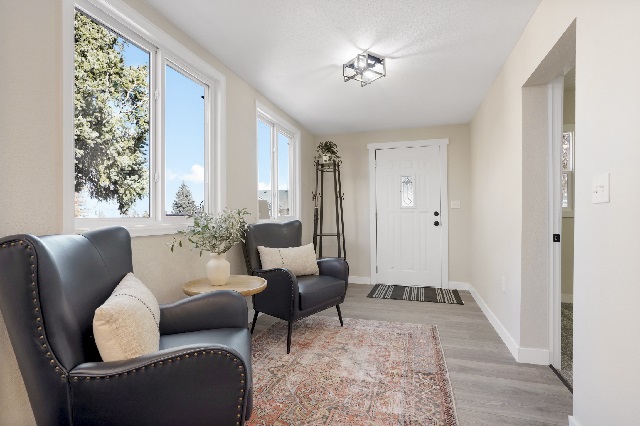
Are you looking for how to downsize your home for retirement?
It’s a fantastic accomplishment, and you deserve it.
Downsizing your house in retirement can save you money, reduce your obligations for property maintenance, and allow you to live life to the fullest, but you must make the correct decisions along the way.
While downsizing can be difficult, there’s no need to worry; the following recommendations will help you stay on track and make the most of your retirement.
While the downsizing process will depend on your specific position and priorities, a greater understanding of the fundamentals will help you move forward with the confidence that comes from knowing you’re making well-thought-out decisions that are in your best interest.

Retirement, fundamentally, is when you leave the workforce behind. The traditional retirement age is 65 in the United States.
The full retirement age (when you can collect full Social Security benefits) is 66 or 67 years old, depending on your birth year.
The early retirement age is 62 (the earliest age you can collect Social Security benefits).
Typically, 40% of pre-retirement income comes from Social Security for those who decide to retire early. If you delay collecting Social Security until age 70, you will receive the maximum benefit. (1)

The most crucial question to ask yourself is what your retirement goals are, and the answer should influence your future steps.
People consider downsizing for a variety of reasons, and the time before retirement is ideal for thoughtful consideration.
Most retirees’ ambitions fall into numerous categories.
Many people evaluate the downsizing process in terms of financial goals.
To begin, your salary will most likely diminish after retirement, so saving money for your home makes sense.
A smaller home is likely to be less expensive overall, have a lower mortgage (if you have one), require less upkeep, and pay cheaper property taxes, to mention a few.
It’s no surprise that financial objectives generally take precedence when it comes to downsizing.
As we age, we must consider mobility challenges, slip and fall risks, and how to conserve our energy so that we may focus on the activities we enjoy rather than caring for a present home that may be far too large for our current needs.
Downsizing today to a location that accommodates your lifestyle as you age can considerably increase your capacity to live independently.
There’s also the issue of living life on your own terms to consider.
There are several possibilities when it comes to downsizing.
For example, if you choose a retirement community, you may expect to find a variety of amenities that will allow you to live the lifestyle you desire.
Additional possibilities to consider are:
Retirement is an excellent opportunity to focus on what is most important to you.
Previously, families tended to stay near to one another even when their children grew up and began their own families, but this is no longer the case.
One of the most common reasons seniors choose to downsize is to be closer to loved ones, which typically means spending more time with their grandchildren and just keeping close to family.
There is no disputing that staying in a family home, you’ve lived in for years may be taxing, and nothing lightens your mood like decluttering and downsizing.
Even if you stay in the same geographical region, downsizing provides a fantastic opportunity to free yourself up to do whatever you want, whenever you want.

The best method to downsize for retirement is to take each step intentionally and review your associated needs along the way. Let’s have a closer look.
The first stage in the downsizing process is to choose the best selection for you, one that benefits you financially and emotionally.
At this point, it’s a good idea to consult with a trustworthy financial counselor or financial planning specialist to ensure that you’re on the right route financially.
The other side of the equation entails communicating your plans to your children and any close relatives who may be affected.
While the final decision is yours, having the loving support of people closest to you can make the process less intimidating.
You’ve done the soul-searching and decided to downsize. Now begins the preparation work. This may include all of the following:
You are a homeowner who has decided to downsize but are unsure whether downsizing before or after retirement is best for you.
Downsizing before retirement allows you to take your time by gradually and painstakingly decluttering your home, locating the right spot for you to settle, carefully assessing your needs, and systematically selecting what follows next.
However, the flip side is that you’ll be working full-time, and anything extra might add up quickly. There’s also the issue of timing to consider.
If your downsizing plans entail a large relocation, it’s unlikely you’ll be able to complete this before retiring. This is another concern you must consider when determining the right time to downsize.
You’ve come this far; now it’s time to sell your home. If you choose the traditional method and hire a realtor, you can expect the following:
Selling your home through an agent during retirement might take up to six months to close the transaction.
In those six months, you may have spent a lot of money on repairs, open houses and more.
Therefore, if you don’t have the money or time to renovate your home and hire a real estate agent, consider taking another route.
Selling your house to we buy houses Arvada when downsizing for retirement is the best alternative to hiring a real estate agent.
Remember, as you manage the complexities of a cash sale deal, make sure all legal components are in order.
Hire a real estate attorney to evaluate contracts, conduct negotiations, and represent your interests.
Here’s what you need to know about selling your home for cash when downsizing for retirement.
To attract cash buyers while ensuring a fair return on investment, you must undertake a complete market analysis of your residence, taking into account the local real estate landscape, current sales data, and pricing trends.
Market analysis is the foundation for making informed pricing decisions.
A detailed analysis can help you uncover demand-supply dynamics, evaluate the competitive landscape, and gauge the buyer’s impression of value.
Competitive pricing techniques are important in cash sales because they help position your property compellingly against similar products in the marketplace.
Property condition, location, amenities, and market circumstances all have an impact on pricing strategy, necessitating a nuanced approach to ensure a successful transaction.
Selecting the correct buyer for a cash sale is critical to ensuring a smooth and dependable transaction.
Selling your home to cash buyers when downsizing for retirement can help you enjoy the following benefits.

Suppose you are concerned about not having adequate retirement income and are a homeowner with equity in your property.
In that case, there are numerous methods to use that equity to alleviate your financial concerns.
Selling your property to pay for your retirement is one of several choices.
If your concerns are solely financial and you want to stay in your current house, you can consider property equity release in the form of a lifetime mortgage.
The biggest advantage of getting a lifelong mortgage is that you do not have to leave your property.
However, keep in mind that you will have to pay interest on the money borrowed through a lifelong mortgage.
Lifetime mortgages typically have much higher interest rates than ordinary mortgages.
As with a conventional homeowner mortgage, the more you borrow in comparison to the property’s worth, the higher the interest rate.
You can either make monthly payments, like with a traditional mortgage or let the interest accumulate.
If you want to let the interest accrue, the debt will be settled when the property is sold.
Monthly repayments will be an additional cost to consider in retirement when income is typically much smaller.
Alternatively, allowing the interest to accumulate will significantly impact any inheritance you want to leave.
Your unique circumstances and financial situation heavily influence the decision to sell your home to fund your retirement.
It can assist you in accessing the cash stored in your home.
This will increase your retirement income, but any house transfer is a significant undertaking.
Consider all of your alternatives carefully, and get independent financial advice if necessary.
@ 2024 Chris Curry. All Right Reserved